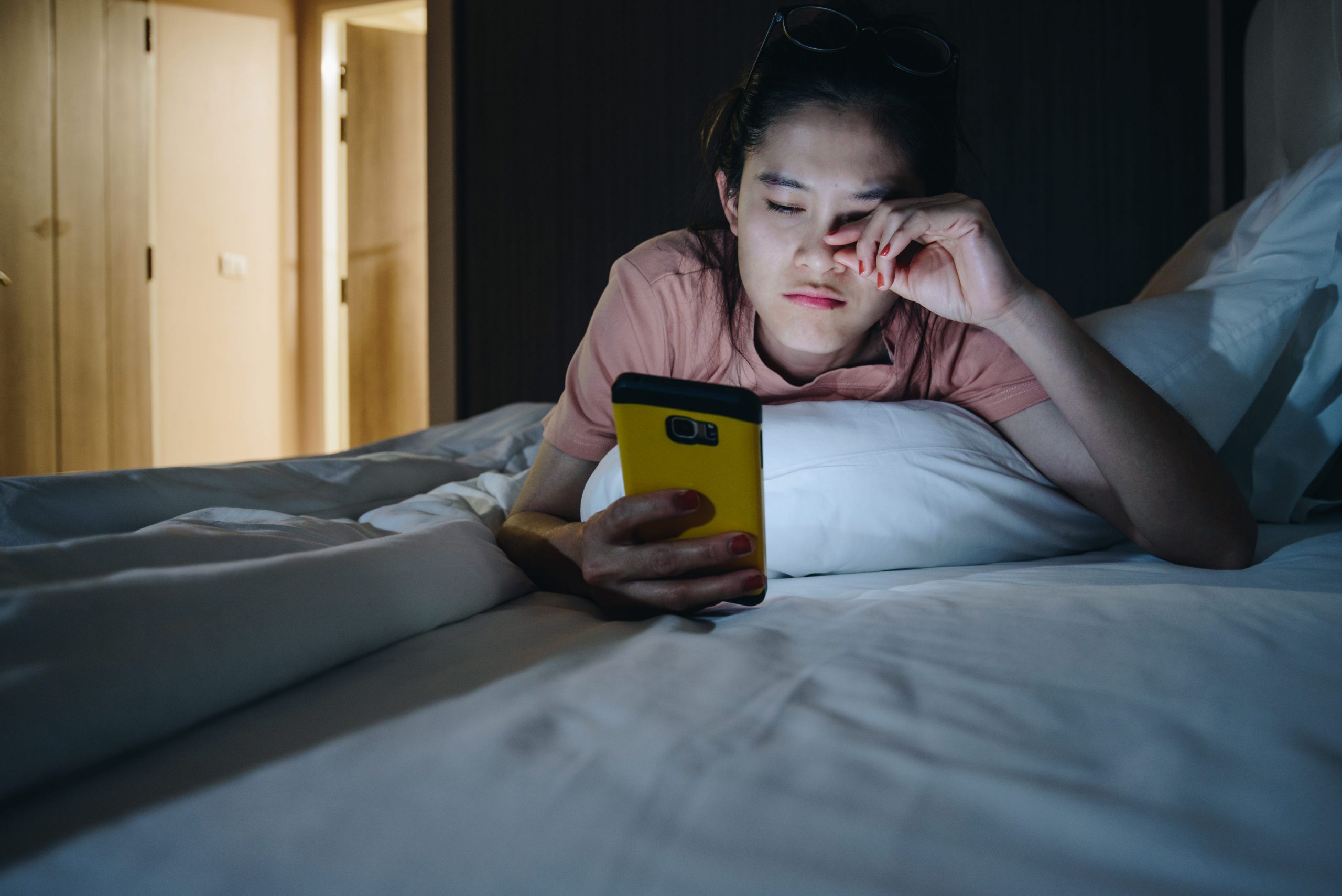
Boy_Anupong/Getty Images
- As people have adjusted their daytime rhythms to the pandemic, they’ve also experienced changes in their sleep patterns.
- Some people are getting an extra hour of sleep in the morning, while others are staying up late.
- The coronavirus has infected dream content and recall, especially for women.
- Visit Insider’s homepage for more stories.
A lot of the small pleasures lost to the coronavirus pandemic — like spending time outside, going to the gym, and seeing your friends — are also known as zeitgebers: cues that help regulate your sleep schedule.
Daylight, exercise, and social interactions, among other factors, keep your biological clock on track. That biological clock drives your circadian rhythm, which is responsible for your sleep and wake times, so any changes to your waking life can affect your sleep as well.
“People are having to find new rhythms in their life, and sometimes it’s throwing their sleep off,” Michael Grandner, director of the Sleep and Health Research Program at University of Arizona, told Insider.
Insider spoke with sleep scientists who said the effects of the pandemic on sleep have varied widely, with some people catching up on sleep and others staying up late due to stress. Even dreams aren’t safe from COVID-19.
Here are four ways the pandemic may be affecting your sleep schedule, quality, and content.
You might be getting up later and going to bed later
During lockdown and throughout the pandemic, people have reported shifting their sleep timing to go to bed later and wake up later, said Julio Fernandez-Mendoza, sleep researcher and associate professor at Penn State University.
This might have to do with many workplaces going remote, he said, allowing people to sleep in when they normally would have been commuting to work.
Cathy Goldstein, associate professor of neurology at the University of Michigan Sleep Disorders Center, told Insider that she's had some patients recover from chronic partial sleep loss since the pandemic forced them to work from home.
"Now that they can work from home, they're able to sleep later, their sleep is more consistent between the weekends and weekdays, and they feel a lot better," Goldstein said.
A study conducted in Italy in March found that young adults went to bed later and woke up later during lockdown. Both college students and workers delayed their wake time by about 40 minutes, and workers slept in even more than their student counterparts, getting up almost an hour and 15 minutes later than they did pre-pandemic.
By spending too much time in bed, you may be sabotaging your sleep
Overall, those surveyed in the Italian study spent more time in bed since the start of the pandemic, but paradoxically reported a worse quality of sleep that deteriorated even further with higher reported levels of stress, anxiety, and depression.
"If you're getting up too late or spending too much time in bed during the day, your body might not be ready for sleep when you are," Grandner said.
Grandner recommended cutting down on the waking time you spend in bed in order to form a strong association between the bed and nighttime sleep. More hours spent lounging in bed also means less sunlight and exercise, which are vital to a good night's sleep.
"I don't think many of us realize how much exercise we get just living in normal society, like walking to your office, walking to public transportation, walking to a restaurant or coffee shop," Goldstein said. "It's a lot of activity that people have lost, and physical activity does help with your sleep, particularly deep, slow-wave sleep."
Physical activity and light exposure will help you get high-quality sleep and keep your circadian rhythm running smoothly, Goldstein said, so she recommends stepping outside for some exercise, or at least a short walk, if you can do it safely.
High stress levels lead to COVID-somnia
A study done in China during the early stage of the pandemic found that those who perceived COVID-19 as a greater threat were more likely to experience insomnia. The prevalence of insomnia was even higher in young women.
In the US, a survey by Sleep Standards, an independent sleep news outlet run by health experts, found 68% of respondents had trouble sleeping or continued to experience stress even after lockdown.
"A lot of people are having a hard time detaching at night with everything going on, so they're having a harder time falling asleep," Grandner said.
People who used to have normal nighttime awakenings are also having trouble falling back to sleep, he added.
If you can't fall asleep after 30 minutes of tossing and turning, Grandner recommended getting out of bed and distracting yourself until you feel sleepy so you don't associate your bed with wakefulness.
You might recall more bad dreams
The coronavirus has even infected people's dreams. Accidental handshakes, getting stuck at borders during lockdown, and deaths of loved ones appeared in dream journals during lockdown in Finland.
Women reported more frequent nightmares and higher stress levels in the Finnish study. Another study of 3,000 adults in the US found that women, along with people whose lives were most affected by the pandemic, reported the strongest effects on dream recall and content.
Anu-Katriina Pesonen, lead author of the Finnish study, said COVID-related dreams could represent practice coping with pandemic life.
"We speak about bad dreams, but maybe they also can be very good dreams," Pesonen previously told Insider. "Sleep can foster learning processes, and we all have to learn new ways to behave socially."
